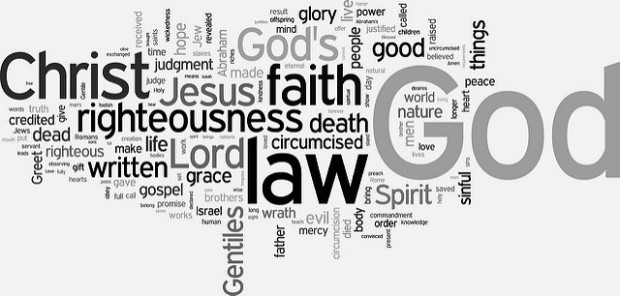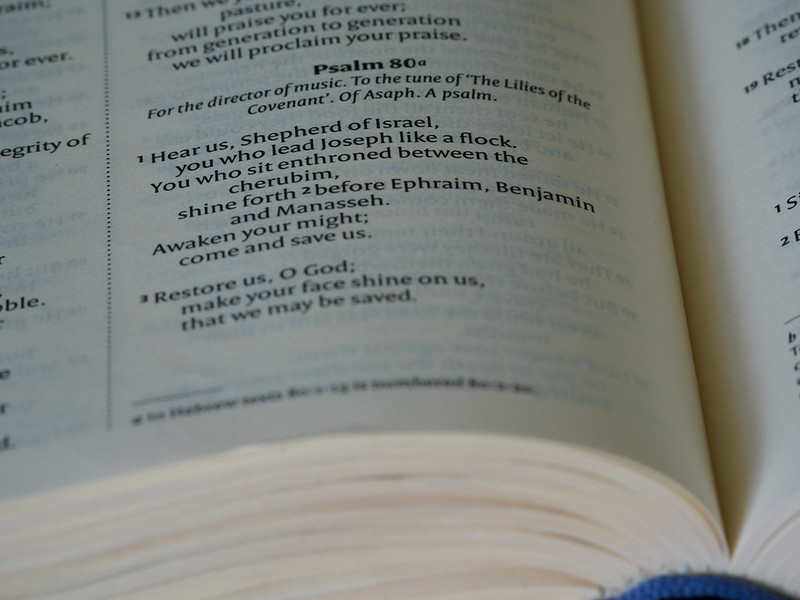Luke 1:26-38
CLICK HERE TO READ SCRIPTURE ON BIBLEGATEWAY.COM
OBSERVE:
This passage is known as the Annunciation to Mary. This is the announcement that she would conceive the Son of God through the power of God.
Luke’s storytelling technique creates a sense of slowly building drama. He begins first with the tale of Zechariah and Elizabeth. This creates the impression that even the most humble characters in this Gospel are still of great value to God.
Elizabeth is already sixth months pregnant with John, the prophetic cousin of Jesus.
Mary is named only after this introduction, and her initial claim to distinction is simply that she is:
a virgin pledged to be married to a man whose name was Joseph, of David’s house.
But the Angel Gabriel’s visitation will change all that. He greets Mary with great honor as though he is greeting a holy person. She is highly favored and the Lord is with her. Note that this is all anticipatory. She doesn’t have a clue yet what is about to happen, and so she is troubled. She is merely a country girl from a small town in Galilee about to marry a local carpenter.
What ensues is a fascinating dialogue between a being from heaven and a being from earth.
The angel seeks to reassure her that she need not fear. This greeting, Don’t be afraid may have a two-fold purpose:
- Encountering a heavenly being such as an angel is invariably described as a terrifying experience in the Scriptures.
- And the angel is also seeking to calm Mary as she hears this life altering news.
However, the attempt to allay her fears doesn’t work! When Gabriel tells Mary that she will conceive a child who will be both the Son of the Most High and the heir of his ancestor David, her anxiety level seems to increase.
For one thing, this must be a surreal experience for her — encountering a supernatural being is not an everyday experience. For another, she is not naive. She knows where babies come from and she knows that she is a virgin.
What is interesting is that when Zechariah is visited by the same angel and expresses doubt and asks questions, he is punished for his disbelief by being rendered mute until John’s birth. But Mary asks:
How can this be, seeing I am a virgin?
Yet Gabriel seems to be gentle and patient with Mary.
Is the angel more gentle with Mary because he can read her heart? Does the angel recognize that she is not asking the question out of a sense of skepticism, but sincere searching? Or does the angel respect her role as the mother of the Son of God? Does the angel accommodate her youth? The Gospel writer doesn’t tell us.
In any event, Gabriel makes clear that the child to be born will be conceived through the power of God, when the Holy Spirit overshadows her. The child will be called the Son of God.
Then the angel tells her about her kinswoman, Elizabeth, as if to confirm for Mary that God has not only the power to invest life in a virgin’s womb, but also in the barren womb of an old woman. This appears to be intended as a sign for Mary, because the angel then declares:
For nothing spoken by God is impossible.
Mary’s fears seem to be calmed, and she declares:
Behold, the servant of the Lord; let it be done to me according to your word.
Mary surrenders her will to the will of God and becomes a key part of the Salvation History about to unfold.
APPLY:
On the one hand, we may be able to identify with Mary. She is a young woman from an obscure town with no credentials to brag about. On the other hand, what happens to her is supernaturally unique.
This account gives us pause as Mary considers this shocking news. The last thing on her mind is having a child. Why, she’s not even married yet!
There is much to consider here. First, the Angel Gabriel’s news carries a definite theological punch with it. This child, who would be named Jesus, is to be:
great, and will be called the Son of the Most High. The Lord God will give him the throne of his father, David, and he will reign over the house of Jacob forever. There will be no end to his Kingdom.
From a theological perspective, this tells us something very important about the nature of Jesus — he is both divine and human. As the Nicene Creed puts it, Jesus is:
the only-begotten Son of God, begotten of the Father before all worlds; God of God, Light of Light, very God of very God; begotten, not made, being of one substance with the Father, by whom all things were made.
But at the same time Jesus:
was incarnate by the Holy Spirit of the virgin Mary, and was made man.
Jesus is fully God and fully man in order that he might be the bridge between God and humanity.
The second issue we wrestle with in this beautiful story is the virginity of Mary. Some modern skeptics have scoffed at the virgin birth. Some biblical scholars suggest that the prophecy of Isaiah 7:14 has been misapplied to Mary:
Behold, the virgin will conceive, and bear a son, and shall call his name Immanuel.
These modern interpreters argue that the word for virgin in Hebrew, almah, simply means “young unmarried woman.”
Even if that is so, Luke (a physician who presumably knows something about babies) doesn’t appeal to Isaiah for proof of Mary’s virginity, Matthew does. But both Gospel writers insist on her virginity. She either is or she isn’t! And if she isn’t, then the Gospels fail the test of truth.
So, since I believe in the Gospel record, what does it mean? Primarily it underscores the point above, that Jesus is uniquely the Son of God. That he has been conceived by the Holy Spirit. But he is also the Son of Man through his human birth as the child of Mary.
Third, where this passage becomes accessible to us is in Mary’s complete and total surrender to this mission:
Behold, the servant of the Lord; let it be done to me according to your word.
This is the essence of the ideal Biblical relationship with God, a paradigm followed from Abraham and Moses up to the fishermen by the Sea of Galilee. It is certainly legitimate to ask questions, to wonder. But ultimately the only acceptable response to God’s grace and favor is surrender.
RESPOND:
Like Mary, and so many other biblical characters, when I encounter the Word of God, the first thing I do is ask questions. Of course, I don’t usually encounter angels — most of my encounters are while reading the Bible, or in the situations of my daily life, and in moments of prayer and discernment. But my response to the initiative of God in my life must be the same:
Behold, the servant of the Lord; let it be done to me according to your word.
I must surrender completely to God, just as Mary does.
Our Lord, you come to each of us in different ways — a burning bush, an angel, a still, quiet voice. But you invite us into an adventure with you that changes our lives and the lives of others. And the only appropriate response is surrender to you. Which means that we trust you with our very lives. Amen.
PHOTOS:
“The Annunciation” by Henry Ossawa Tanner is in the Public Domain.











![This stained glass window depicting "The Visitation" is from Magdalene College, Cambridge. [photo by Fr. Lawrence Lew, O.P.]](https://soarlectionarybiblestudy.wordpress.com/wp-content/uploads/2015/12/8899849150_999568bc44_o.jpg?w=620)